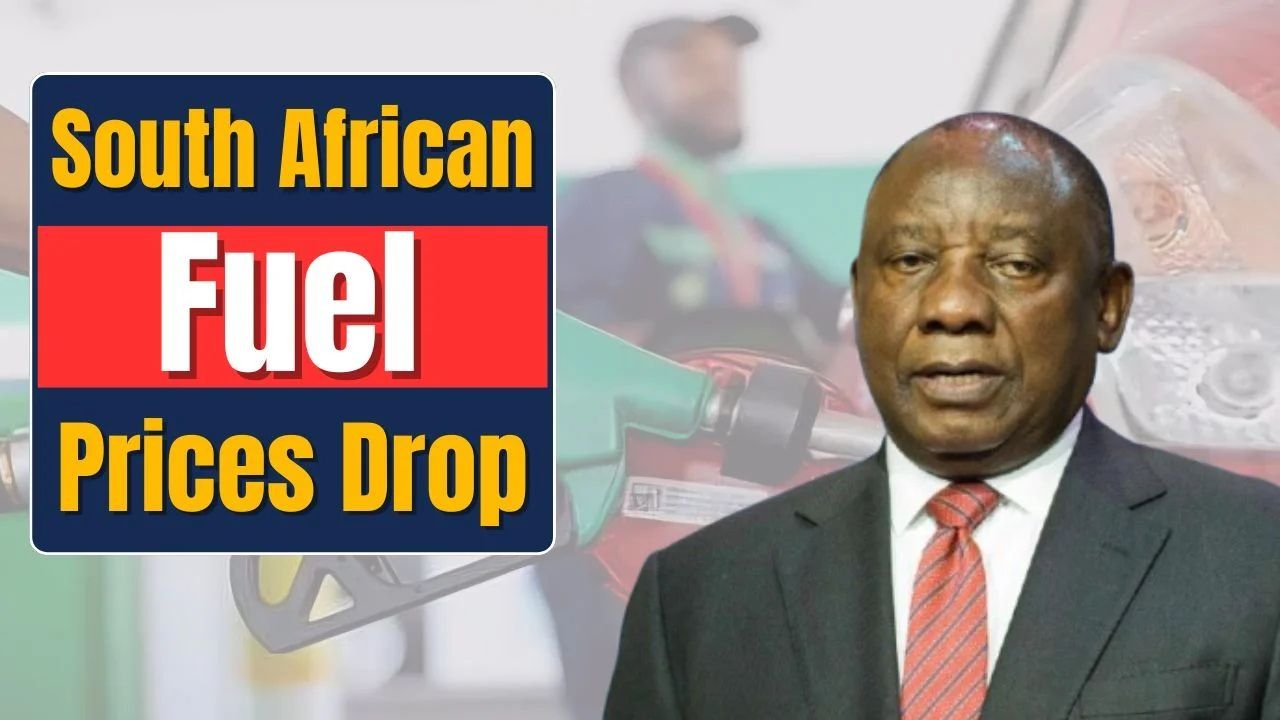In a welcome move for motorists and businesses alike, the Department of Mineral Resources and Energy (DMRE) has announced a significant reduction in fuel prices across South Africa starting from 7 August 2025. This marks one of the most notable monthly fuel price drops in over a year, bringing much-needed relief amid continued economic pressure and high living costs.
According to the official announcement, both petrol and diesel will see reductions at the pump, driven primarily by a stronger rand and a decline in global oil prices during July. Brent crude oil averaged below $78 a barrel last month, while the local currency remained relatively stable against the US dollar factors that contributed to a more favourable fuel price structure.
Breakdown of August 2025 Fuel Price Cuts
The latest adjustments will affect all fuel grades, including unleaded petrol (93 and 95), diesel (0.05% and 0.005% sulphur), and illuminating paraffin. Motorists across urban and rural regions will experience price drops, although the actual amount may vary slightly depending on inland and coastal pricing structures.
Here’s a breakdown of the new pricing structure effective 7 August 2025:
| Fuel Type | July 2025 Price (R/Litre) | August 2025 Price (R/Litre) | Change (R) |
|---|---|---|---|
| Petrol 95 (Inland) | R24.18 | R23.31 | -R0.87 |
| Petrol 93 (Inland) | R23.88 | R23.05 | -R0.83 |
| Diesel 0.05% (Inland) | R22.99 | R22.05 | -R0.94 |
| Diesel 0.005% (Inland) | R23.05 | R22.10 | -R0.95 |
| Illuminating Paraffin | R16.40 | R15.55 | -R0.85 |
What Caused the Drop in Prices?
The two main drivers behind the August price drop are a decrease in global crude oil prices and improved exchange rate stability. July saw a slowdown in global demand due to higher inventory levels in China and the US, leading to reduced oil prices. At the same time, the South African rand strengthened slightly against the US dollar, which helped lower the cost of importing refined fuels.
The Central Energy Fund (CEF), which tracks international petroleum product prices and the rand/dollar exchange rate daily, reported consistent positive movements throughout July, laying the groundwork for this downward fuel price adjustment.
Impact on Consumers and the Broader Economy
This fuel price reduction is expected to have a positive ripple effect on household budgets, transport fares, food distribution costs, and even retail prices. Logistics companies and small business owners are among the biggest beneficiaries, with lower fuel expenses potentially improving profit margins and reducing pressure to raise service prices.
For private motorists, especially those commuting long distances or using petrol-intensive vehicles, the August adjustment could mean savings of over R100 per full tank, depending on the vehicle and location.
Expert Outlook for the Coming Months
While the current fuel price reduction is a positive development, energy analysts warn that volatility remains a concern heading into the final quarter of 2025. Factors such as global geopolitical tensions, weather-related supply disruptions, and interest rate changes in major economies could influence both the price of crude oil and the strength of the rand in the months to come.
The Department of Energy has urged South Africans to remain energy-conscious and continue practicing fuel-saving measures even during price dips, as long-term sustainability remains a priority.
Conclusion: August Brings Breathing Room for South African Motorists
The drop in fuel prices this August will bring relief to millions of households and businesses facing ongoing financial strain. With reductions across all major fuel types, the announcement has been met with optimism by the public and welcomed by industries reliant on transport and mobility. However, with uncertain global economic conditions still in play, the coming months will determine whether this is a temporary dip or the start of a more stable pricing trend.





